Editor’s Note:
The following article is a fictional story based on true events that occurred in Tulsa from the early 1900s through WWII. The story of the Hex house and its owner Carol Ann Smith are well documented and can be easily found with an internet search. But we at Uniquelahoma thought it would be fun and unique to delve a bit deeper into the mysterious story with a fictional plot about the documented events that are true.

The secret surrounding those events has been shrouded in mystery, and we will probably never know the truth behind them. But it’s always fun to speculate! We asked Oklahoma fiction novelist Eric Neher to review what is known about the case and entertain us with his imagination. We hope you enjoy this twisted tale of fiction, haunted facts, and weird history in Oklahoma. Below are some of the facts of this case:
- Carol Ann Smith lost two children in infancy, and it is believed her mind was broken due to those losses.
- She kept two women as slaves whom it believed she controlled with witchcraft. The women were not related to Smith.
- The two captives lived in deplorable conditions for seven years, were beaten, starved, and yet had jobs where they left the house every day and voluntarily returned. The women also turned over their paychecks to Smith.
- Her husband died under questionable circumstances, and she collected life insurance on him.
- Her housemaid died one year later under mysterious circumstances when she was run over by a car. Smith was the beneficiary of her life insurance policy. Both the investigator of that accident and the driver both died suddenly shortly thereafter.
- She was sentenced to one year in prison during WWII for ration book fraud. She disappeared without a trace after her release. The women were freed at the time of Smith’s arrest but never gave any reasonable explanation for why they stayed in their situation.
- When her house was raided for ration book fraud, several books on witchcraft, mind control, and the occult were present.
- She was known as the She-Svengali.
Lady of the HEX House
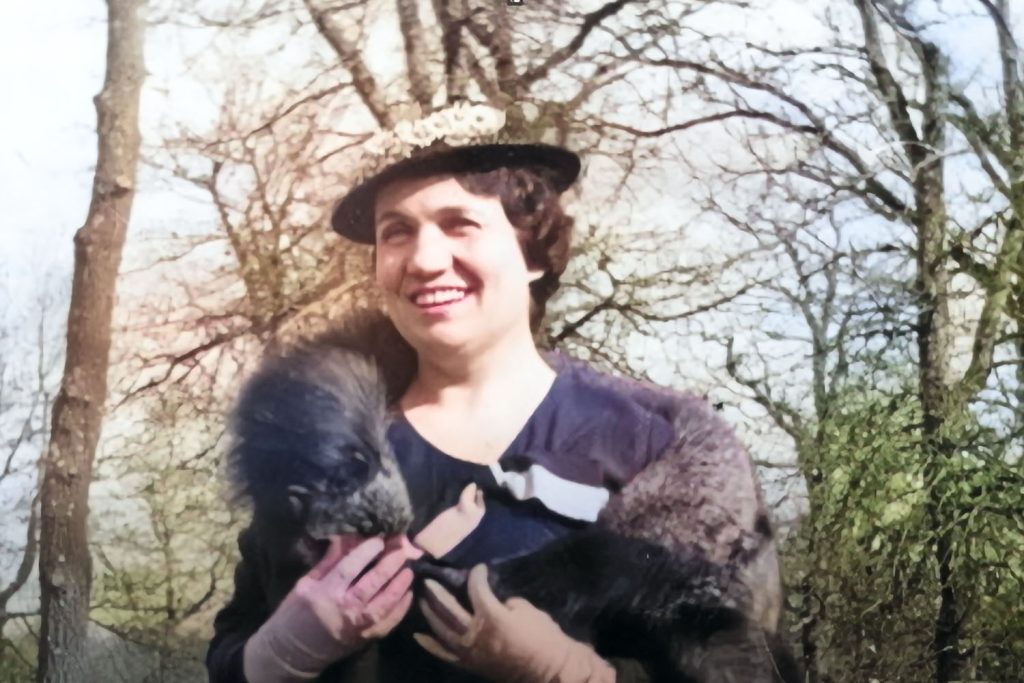
Rapture is a handy tool for those who use it properly. Any covenant or practitioner of the art worth their weight in salt knows this. Misleading those with what they want to hear can easily lead to fortuitous seduction.
1. Offer advice containing a hook.
2. Pick appropriate times for consultation, preferably after the mark has suffered a particularly long day.
3. Mirror that which they are. Become a part of not just the events of their life but their life.
These three rules will provide the opportunity to command those with feeble will and lacking constitution…
Captain John Byars placed the paper on his desk and rubbed his eyes. Across from him sat Larry Green, a third-grade detective responsible for the arrest.
“What is this?” said Byars.
“I found it in Mrs. Smith’s room, along with some other items.”
“Isn’t she the one who was picked up for fraud?”
“Yes sir,” said Green. “We found a storeroom filled with ration books.”
The complaint had been provided by a local kid working at the market Mrs. Smith frequented. The war was now in its third year, and the government was offering food rations for those less fortunate, with each member of their household receiving one. According to the kid, Mrs. Smith had brought in a binder. Maybe the kid felt like it was his patriotic duty to turn her in, but Evans suspected it might be a little more personal.
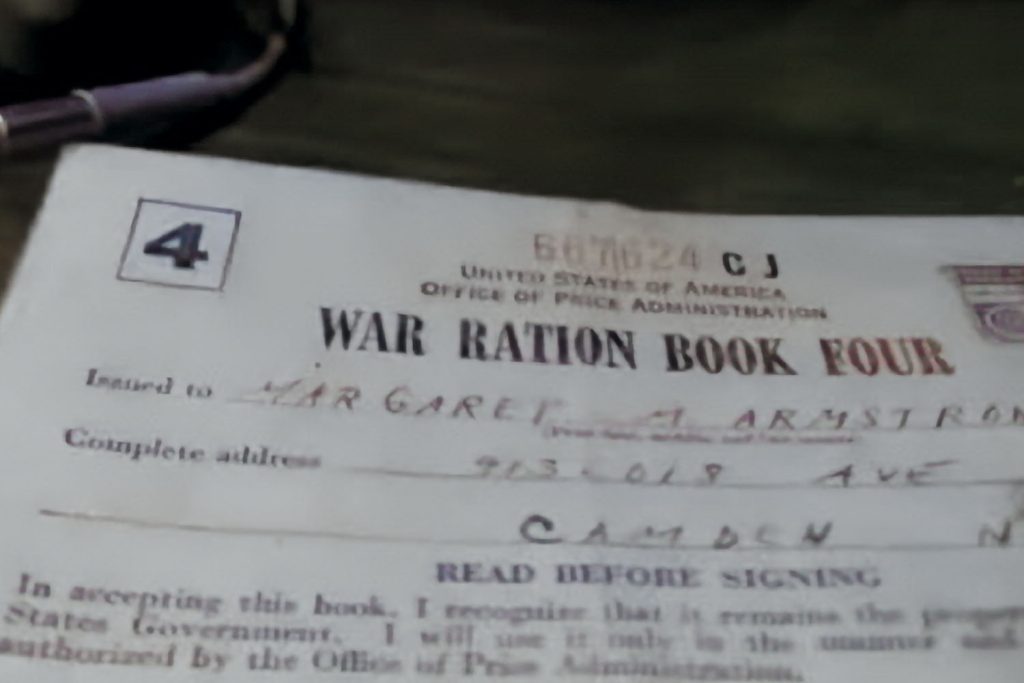
Byars looked down at the paper and said, “What else did you find?”
“A bunch of books and two women locked in her basement.”
Byars looked up at the man, hoping for any indication of a joke.
“Are you serious?”
“Yes sir, I am.”
“Do we know who they are?”
“Virginia Evans and Willetta Horner.”
“Are they kids?”
“Both are in their early thirties,” said Green.
“And no one reported them missing?”
“Apparently not, but I did get in touch with Ms. Evans’s father. All he said was ‘I knew it’ and then hung up.”
“I want a background check done on Mrs. Smith and I want to talk to those girls,” said Byars.
“I have them in the waiting room,”
“Where’s Mrs. Smith now?”
“She’s in questioning. Do you want to see her?”
“Let me talk to the women first,” said Byars rising from his chair.
He followed Green out of the office. Together they made their way down the paint-depleted hall, pausing at a window on the right. It was a one-way pane of glass four feet wide and three feet tall, designed for clandestine observation. It revealed a small room with a metal table placed at the center. A woman in her late forties or early fifties wearing a black velvet dress with a wide Peter Pan collar sat with her hands folded on her lap. She was staring straight ahead as if in a trance, her face stoic.
“Mrs. Smith?” said Byars.
“That’s her,” said Green.
“She doesn’t seem too concerned,” said Byars. “Let’s get to the women.”
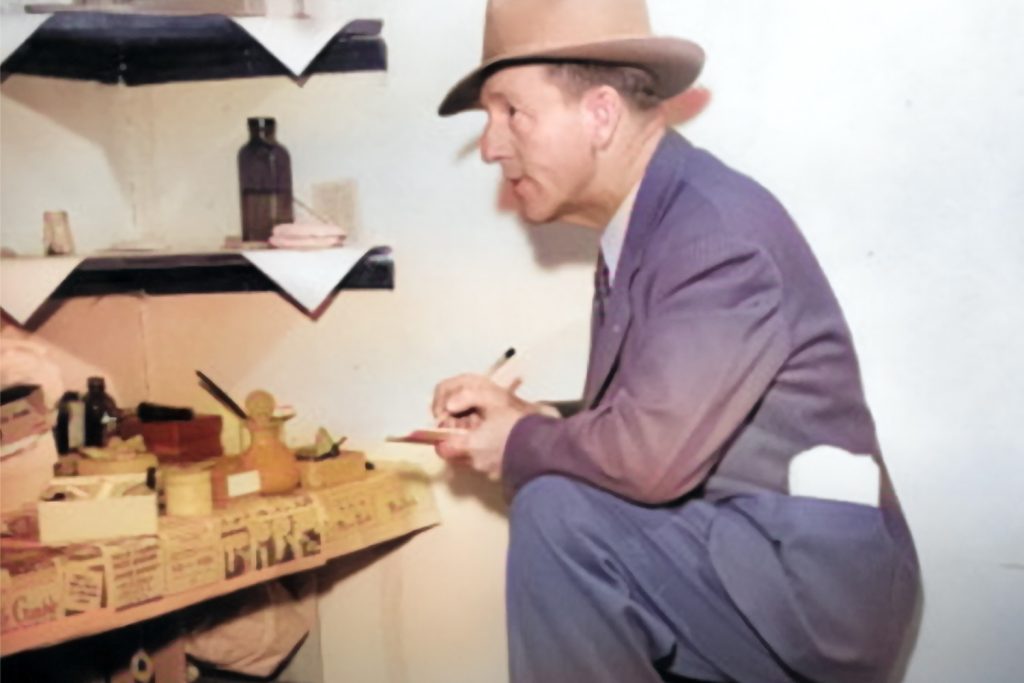
*****
They sat on a couch, their hands intertwined, and unlike Mrs. Smith, their faces were contemporary works of fear and confusion. Another difference was what they were wearing. Their bodies were decorated in dirty hand-me-down dresses. The woman on the right was sporting a fading bruise on her cheek.
Byars entered the room, pausing briefly, and sat across from them.
“Ladies,” he began. “My name is Captain John Byars and I’m here to help you.”
“We just want to go home,” said the one on the left, the one without the bruise.
“I understand that,” said Byars. “And you will, but first, I need to ask you some questions.”
“We didn’t do anything.”
“I didn’t say you did,” said Byars. “Listen, can I get you anything? Coffee? Tea?”
“We want to go home,” said the woman on the right with a voice barely above a whisper.
“I promise you will. Which one of you is Virginia Evans?”
The woman with the bruise slowly nodded her head.
“Then that would make you Willetta Horner?”
“My friends at work call me Willa,” the girl said, struggling to smile.
“You work?” said Byars.
“Yes sir,” said Willa. “Six days a week.”
“Where do you work?”
“Murphy’s Metal Manufacturing.”
“Right,” said Byars, leaning back in his chair. “They have a contract for tank treads.”
“Yes sir,” said Willa. “We make those and a lot of other stuff.”
Murphy’s Metal Manufacturing was one of the lucky ones who had managed to survive the crash and had landed a lucrative government contract in support of the war.
“What about you, Virginia?” said Byars, glancing at the girl with the bruised face.
“She has a job at the Country Diner,” said Willa.
“Does she talk?” said Byars.
“I do sir,” said Virginia. “I’m a waitress.”
Byars reached into the inside pocket of his jacket and removed a small pad of paper, flipping it open. He then pulled out a pen from the breast pocket of his shirt.
“How did you get that mark on your face?”
Virginia lowered her chin, her hand rising to where the purplish patch had begun to yellow.
“I was late,” she murmured.
“What was that?”
Virginia let her hand fall to her lap and said, “It was my fault. I was talking to Hank Miller after work, he’s the cook, and I forgot to check the time.”
“Are you saying you were punished for being late?” said Byars.
“I’m never late,” said Willa, with a tone of pride that baffled Byars.
“What were you late to?” said Byars.
“Check-in,” said Virginia. “And it was payday. She really doesn’t like it if we’re late on payday.”
“Who doesn’t like it?” said Byars, but he was pretty sure that he knew.
“Mother,” said Virginia.
“Is Mrs. Smith, your mother?”
“She is the shepherd and we must follow her law.”
Byars leaned forward. These women, with their glassy faraway eyes, were as lost as lost could be. They wanted nothing more than to go home, and to them, home was back where they had been found, locked inside of a basement.
“Weren’t you being held captive?” he said.
“We were being punished,” said Willa.
“For what?” said Byars.
Before either of the women could answer, there was a knock on the door. Green peeked his head in and said, “Can I see you for a moment, Captain?”
“Excuse me, ladies,” said Byars, rising from the chair. “I’ll be back.”
The two women watched him leave in silence, their hands clenched together like a lifeline.
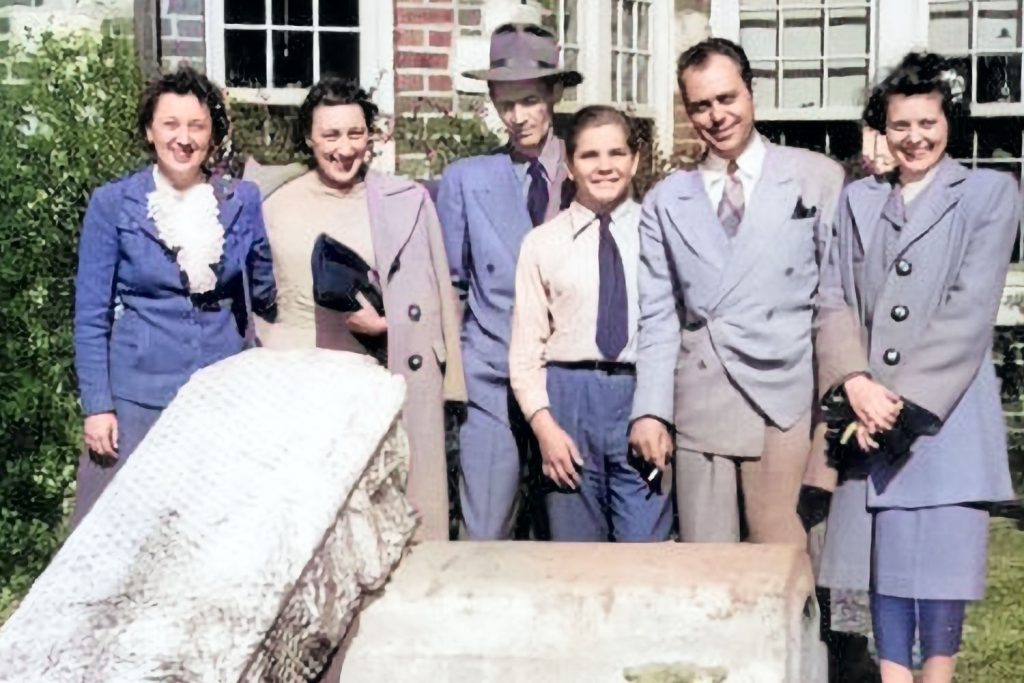
*****
“What do you think?” said Green once they were out in the hall.
“I don’t know what to think,” said Byars. “It’s like they’re brainwashed or something.”
“They just might be,” said Green. “Let me show you something.”
Byars followed the man to where a wide doorway stood open, leading into a large conference room. A corporate table spanned across the floor with a row of leather chairs lining each side. On the table were a stack of books, a pad of weathered paper, and a manila folder.
“Take a look at these,” said Green, planting himself in a chair.
Byars sat across from Green, grabbing one of the books. It was titled Magical Words of Submission. He dropped it to the table and reached for another titled Power Over Others. Then there was Witchcraft of the Past and Summoning the Devil.
A low-wattage chill began to creep through his spine.
“These were in her house?” he said.
“By her bed,” said Green. “Along with a bunch of notes. You looked at one earlier.”
“So there was no kidnapping?” said Byars.
“It doesn’t look like it.”
“What else do you have?” said Byars.
Green slid the manilla folder over to Byars.
“This is what I wanted to show you,” he said. “It’s the background check on Mrs. Smith.”
*****
It read like a Greek tragedy, a promising life that was soon chipped away by disasters, events that not only crippled the mind but devastated the soul. It was enough to dilute anyone’s faith.
Mrs. Caroline Smith’s fall from grace began in 1915 with the death of her first baby boy. He had died two days after being born, allowing just enough time for her love to blossom into pointless hope.
But sorrow wasn’t finished with her yet. Indeed, it had only just begun. In 1919 another child was born. Only this time, there would be no period of hope; its life had ended upon birth.
It was after the death of the second infant that her doctor recommended that she not try again, leaving her devastated. It had been the one thing that she had always wanted, and it, like the children, had been taken from her.
Time continued, as it always does, allowing the wounds to heal, but there would always be scars. Her one anchor through it all was her husband, Fay.
She married Fay Smith in 1914. He was a salesman of extraordinary talent, and because of that, they were able to live a life of luxurious means shared by few others. But sorrow never relents for some, and Black Thursday came as a ferocious reminder. Fay, like so many others, lost his job, and for him, it would be his final loss. His body was found near his car on an old road with a gun lying next to him.
It was the final push over the proverbial edge for Mrs. Smith. The world was now a dark space filled with anguish. A desolate place where joy was nothing more than a setup. And yet financially, things did seem to improve for Mrs. Smith. Her husband did have a life insurance policy, and although it wasn’t a lot, it was enough for her to get by.
*****
Byars sat back, sliding the report toward the center of the table.
“It’s sad,” he said.
“But that’s not all,” said Green. “Her husband had recently become an insurance salesman.”
“So that was his own policy she received?”
“Yes,” said Green. “And there was a maid.”
“They had a maid?”
“Yes sir,” said Green. “Mr. Smith wanted to let her go but Mrs. Smith begged him to keep her on, after talking her into getting a policy.”
“Are you saying that the maid signed a life insurance policy?”
“Yes sir, and Mrs. Smith was the lone beneficiary.”
“And where is this maid now?”
“Dead,” said Green. “She walked out into traffic three months after Mr. Smith died.”
Byars let his eyes drift over to the book titled Power Over Others and stifled a shudder.
“Is something like this even possible?” he said, more to himself.
“Until now, I would have said no,” said Green. “But quite frankly, those two women scare the shit out of me.”
Yes, Byars agreed. They were scary, and not just because they seemed content to be slaves, but because they wanted to be. Even the most brutal crimes, like murder and assault, were usually easy to label. Most were driven by either passion or greed.
For Byars, this did seem to have some element of greed attached, but he doubted if it was the only motive.
“It’s time to talk to Mrs. Smith,” he said, rising from his chair.
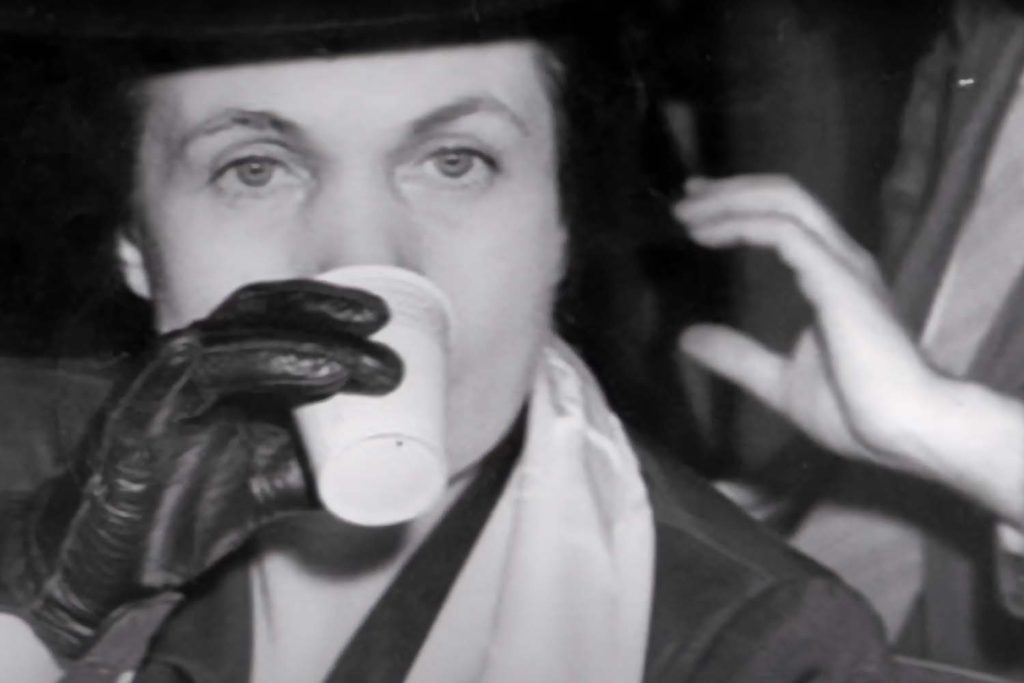
*****
Mrs. Smith could have been a statue. Byars entered the room to find her still staring straight ahead, her back rigid.
He took the seat across from her and offered a smile. It was then that Mrs. Smith’s eyes locked onto his. They were dark blue, almost the color of an early morning sky. Her skin held the pallid tint of porcelain, corpse-like. Byars had always taken pride in his ability to read people, to notice fleeting expressions, but with her, there was no tell. Her appearance remained portrait still.
“Hello Mrs Smith, I’m Captain Byars.”
She said nothing.
“You do know why you’re here, right?”
A change suddenly morphed over her face. Her lips curled up at the corners, and her eyes brightened. Byars would later swear that her skin seemed to, for lack of a better term, come alive.
“I have made a mistake,” she said in a voice filled with enough honey to kill a bear. “I will be happy to pay back everything that I spent.”
“That’s all very well, Mrs. Smith, but what about the two women found in your basement?”
“Willa and Virgina? They’re my roommates.”
“According to them, you’re more like their boss.”
“Oh, they’re just a couple of silly girls. They’d be lost without me.”
“Is that why they call you mother?”
“They do that out of love,” she said, her eerie smile widening.
“And is it love that allows you to lock them in the basement?”
“It’s what they want,” she said. “They know they can be bad sometimes and they expect me to notice.”
“Why do you take their money?”
“Because they want me to,” said Mrs. Smith. “It’s part of the agreement.”
“The agreement?”
“Yes,” she said, leaning forward, and for a moment, Byars thought he saw something flicker deep within her violet eyes, like a flashing bulb that failed to light.
“You see, Captain Byars, this world is a cold place. It’s even worse if you’re a woman, especially if you’re a woman over thirty and single.”
“I don’t understand,” said Byars.
“We are outcasts, Captain. Unwanted and thrown away. Society has deemed us unfit and so we must wander this earth like ghosts, shunned and avoided.”
“I read your file, Mrs Smith. I know about your children and what happened to your husband.”
The flare was again in her eyes.
“Then you know what I’m telling you is true,” she said. “This world is a cold place.”
“Is that why you practice witchcraft?”
She let out a laugh that caused Byars to scoot back.
“Is that what you’re charging me with, Captain? Witchcraft?”
“Of course not,” he said. “I’m just curious.”
“Then get your own books,” she said.
“Mrs. Smith, what happened to your maid-” began Byars.
“Captain Byars, we both know that the only thing you have on me is a few fraudulent food vouchers that I’ve already offered to pay back.”
“And it’s a federal offense,” said Byars.
“But you’re not a Federal Officer, now are you, Captain?”
“I am not,” said Byars.
“Then I have nothing more to say to you.”
With that, Mrs. Smith constricted back into her statuesque pose, her face once again becoming a porcelain dish. Byars watched this with silent fascination. As far as this woman being a witch was concerned, he had his doubts, but something was there. Something buried deep beyond the facade of erroneous manners that she projected. Was she evil?
Maybe, but Byars was sure that she hadn’t started that way. Mrs. Smith’s malevolence was a product created by a stack of calamities that few could overcome, and when one’s light begins to fade, you can either fade with it or learn to accept the darkness. Mrs. Smith not only accepted this darkness but had learned to thrive within its shadows. And that made her dangerous.
Byars left the room, promising to keep a very close eye on her case. It was a promise that he kept.
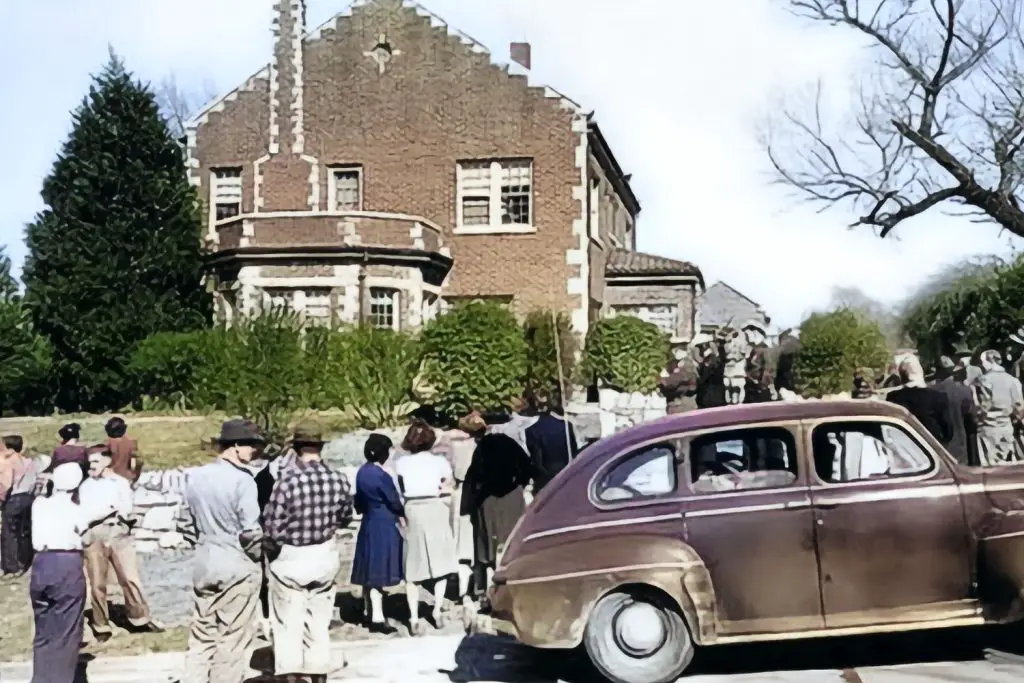
*****
Virginia and Willa were returned to the small towns they had come from, and Byars hoped that whatever spell they had been under could be erased. Mrs. Smith pleaded guilty to defrauding the government and was sentenced to one year in prison, but that was all. Any other allegations were quickly shelved away as unprovable rumors. She was released on a cold day in October, and luck, or something else, was still with her.
The war had been over for five months and was still receiving the top spot in the news, overshadowing the tiny column reserved for her. But Byars noticed. He sat in his Roadmaster and watched as she left the iron gate of McCalister State Penitentiary and entered a cab. But it was the last time he, or anyone else, would see her. She, like the light that had been stripped from her so many years ago, vanished and was never seen again.
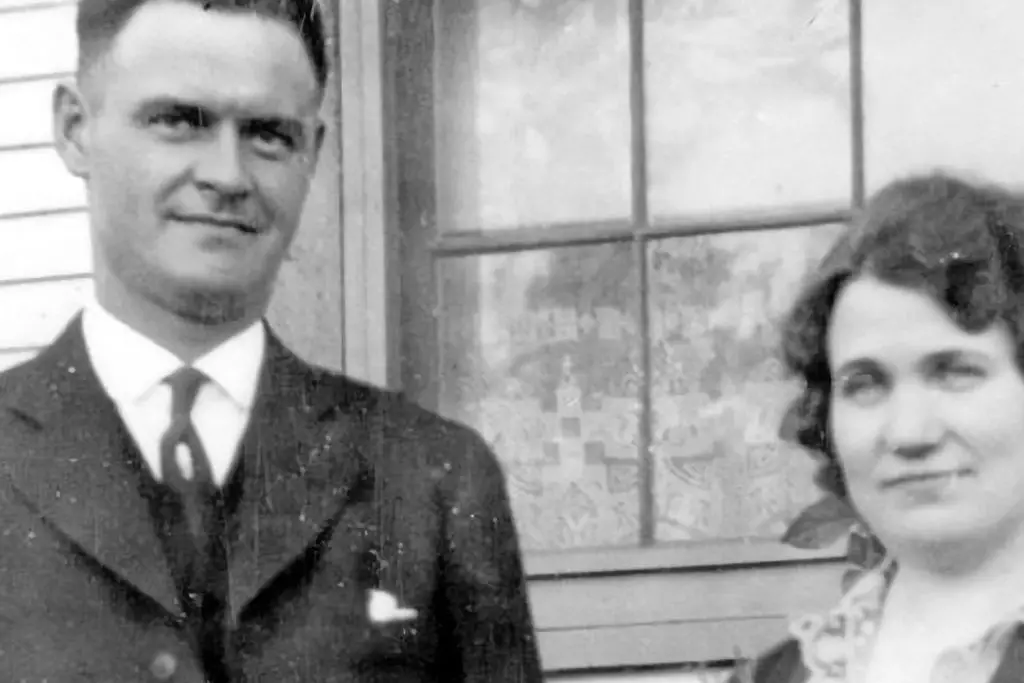

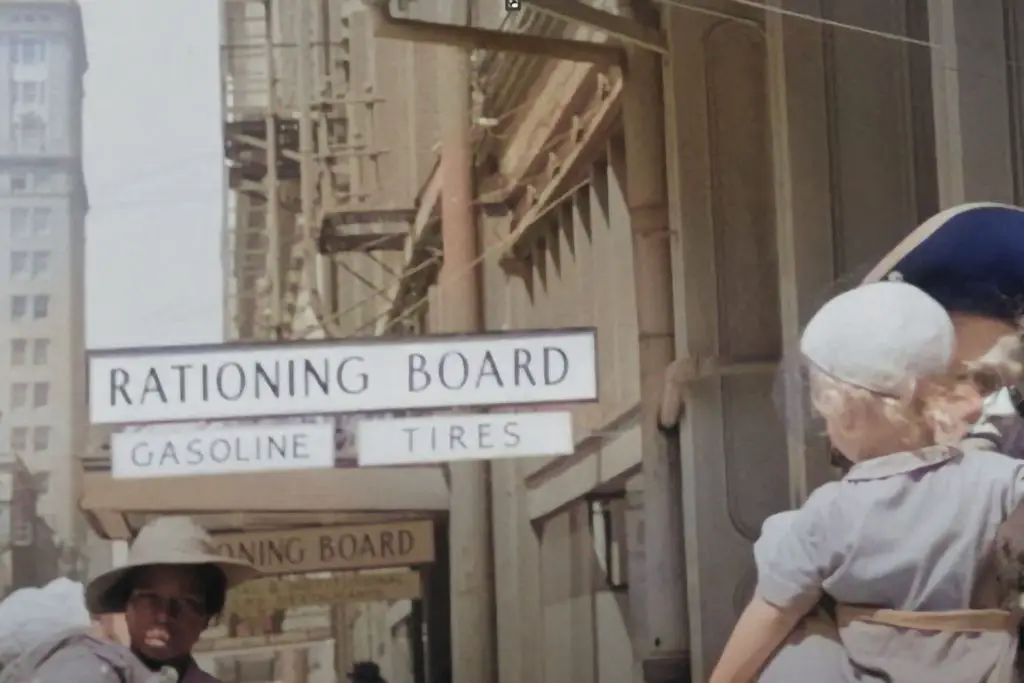












Wasn’t that house off of 21st Street in a well-to-do neighborhood,? I believed demolished for other construction?